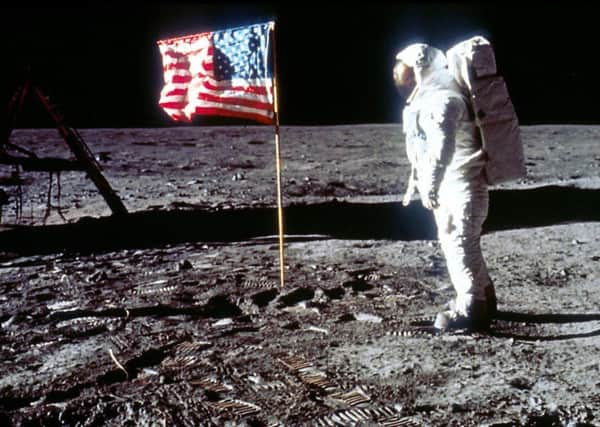Sarah Carroll: Giant leap for a small nation in space race


And there is one industry that stands to benefit from Scotland’s innovation heritage more than any other: the space sector.
The aerospace, defence and space sectors are worth an estimated £6.4 billion to the Scottish economy with the space sector making the largest single contribution at £2.5bn, according to the ADS Scotland 2017 Industry Facts and Figures Guide.
Advertisement
Hide AdAdvertisement
Hide AdExpansion of the space industry has led to Scotland employing 18 per cent of the UK space sector – around 7,000 jobs.
From the spaceport in Sutherland to the proliferation of companies manufacturing satellites, Scotland is already building space industry capabilities.
Space as the final frontier is a tangible economic opportunity for Scotland.
Raytheon has been involved in spaceflight since the infancy of this industry. Our guidance computers steered some of the first space capsules, including Apollo 11. Our microwave amplifier beamed back the first images from the lunar surface and delivered Neil Armstrong’s famous transmission, “One small step for a man, one giant leap for mankind.” In the decades since, Raytheon has become a leader in dozens of space-related specialities, from helping launch satellites to aiding scientists as they probe the deepest reaches of the universe.
While much of this work has been led from the United States, our engineers in Scotland are now ready to take on solutions for space. Raytheon UK’s team combines the rigorous and exacting requirements of low-volume manufacturing with modern, high-volume manufacturing techniques. This means that we’re well placed to develop applications and technologies for space at a scale which previously hasn’t been commercially viable.
It is exciting work, especially as the worldwide market for space technology and exploration grows.
There are already signs within Scotland of the space industry’s potential for growth, including the plan to develop a job-creating Spaceport in Sutherland.
Under the proposals, the site will launch satellites into a particular orbit. It also offers exciting opportunities for public and private organisations with an interest in satellite Earth observation.
Advertisement
Hide AdAdvertisement
Hide AdAnd there is plenty of other work taking place to stimulate and grow this nascent sector.
For example, during the past two years Strathclyde University has used funding from the UK Space Agency to support innovators at a space incubator in the Tontine centre in Glasgow.
Strathclyde University has also led the way as a UK centre for satellite applications, and was chosen five years ago to host one of three hubs bringing together key players in the UK’s multi-billion-pound space sector.
The fact that Scotland’s universities are taking such a lead role in the development of space capabilities is encouraging, especially as students pursue rewarding careers in STEM.
Space really does represent the final frontier, especially as research from the space industry continues to be commercialised to develop a wide range of consumer and business technologies.
Up to 100,000 skilled jobs in the space sector will be created in the next 15 years.
There is great potential for students to make a mark on this rapidly growing industry.
One example is Raytheon’s own Infrared Imaging Space Experiment, or IRISX, currently in orbit, which went from blueprint to product in just 29 months.
Advertisement
Hide AdAdvertisement
Hide AdThat is an unheard of timeline, especially for something that has to survive the harsh environment of space.
IRISX has the potential to revolutionise how we capture accurate Earth imaging data, and it was made possible by the people who engineered the project.
For Scotland’s next generation of space explorers, the future looks bright.
From cubesat technology to remote sensing to the next great scientific discovery, today’s students all have the potential to make their own mark in space.
That is an exciting prospect for a generation to define the future of space exploration in Scotland and on the global stage.
Sarah Carroll is operations lead for Raytheon Space and Airborne Systems